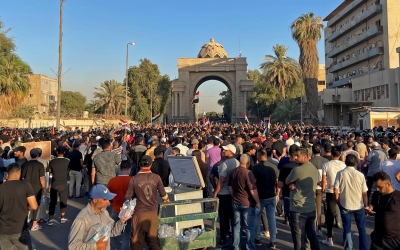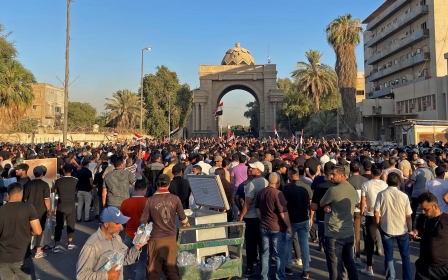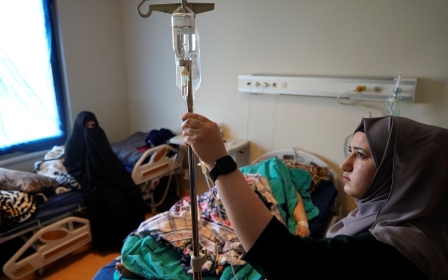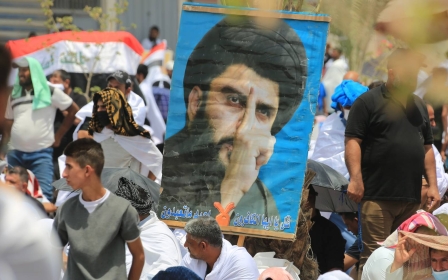Iraq: Scores injured as pro-Sadr protesters storm parliament for second time
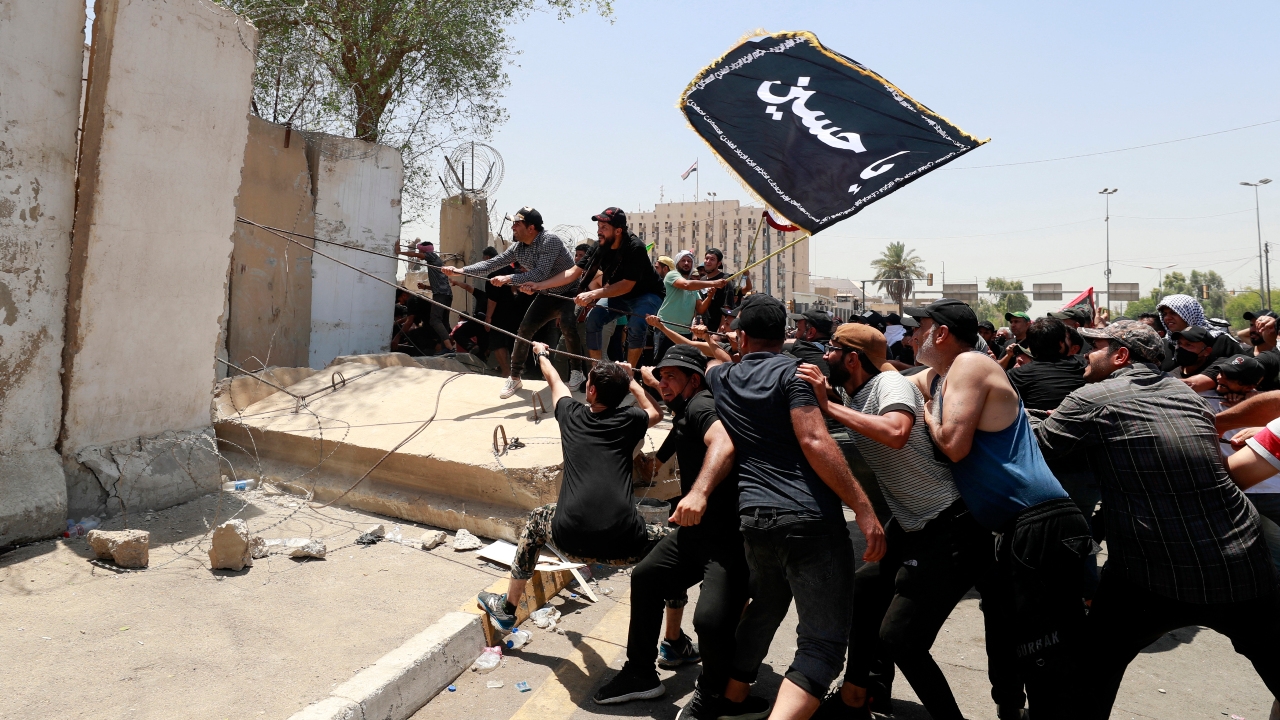
Supporters of the powerful Iraqi cleric Muqtada al-Sadr on Saturday stormed Baghdad's fortified government zone and broke into parliament for the second time in four days, leaving at least 125 people injured and escalating a political stand-off.
The demonstrators were seen waving Iraqi flags and pictures of Sadr inside, as thousands protested outside amid a deep political crisis that has left Iraq without a government since October elections.
They entered after thousands of protesters had massed at the end of a bridge leading to the Green Zone before dozens tore down concrete barriers protecting it and ran inside, an AFP photographer reported.
"The demonstrators announce a sit-in until further notice," Sadr's movement said in a brief statement to journalists over the WhatsApp messaging platform and carried by state news agency INA.
"We are calling for a government free from corruption... and those are the demands of the people," one protester, Abu Foad, said.
New MEE newsletter: Jerusalem Dispatch
Sign up to get the latest insights and analysis on Israel-Palestine, alongside Turkey Unpacked and other MEE newsletters
The scenes followed similar protests on Wednesday, although this time at least 125 people, including demonstrators and police, were wounded, according to a health ministry statement.
Security forces had fired tear gas and stun grenades near an entrance to the district, home to foreign embassies and other government buildings as well as parliament.
Some protesters on the bridge were injured and carried off by their fellow demonstrators.
"All the people are with you Sayyed Muqtada," the protesters, some of whom threw stones, chanted, using his title as a descendant of the Prophet Muhammad.
Sadr's bloc emerged from elections in October as the biggest parliamentary faction but was still far short of a majority and, 10 months on, deadlock persists over the establishment of a new government.
Supporters of the populist Shia cleric oppose the recently announced candidacy of Mohammed al-Sudani, a former minister and ex-provincial governor, who is the pro-Iran Coordination Framework's pick for premier.
The protests are the latest challenge for oil-rich Iraq, which remains mired in a political and a socio-economic crisis despite elevated global crude prices.
Saturday's demonstration comes three days after crowds of Sadr supporters breached the Green Zone despite volleys of teargas fire from the police.
They occupied the parliament building, singing, dancing and taking selfies before leaving two hours later but only after Sadr told them to leave.
'We are here for a revolution'
On Saturday, security forces shut off roads in the capital leading to the Green Zone with massive blocks of concrete.
"We are here for a revolution," said protester Haydar al-Lami.
"We don't want the corrupt; we don't want those who have been in power to return... since 2003, they have only brought us harm."
By convention, the post of prime minister goes to a leader from Iraq's Shia majority.
Sadr, a former militia leader, had initially supported the idea of a majority government.
That would have sent his Shia adversaries from the pro-Iran Coordination Framework into opposition.
The Coordination Framework draws lawmakers from former prime minister Nuri al-Maliki's party and the pro-Iran Fatah Alliance, the political arm of the Shia-led former paramilitary group Hashed al-Shaabi.
But last month, Sadr's 73 lawmakers quit in a move seen as seeking to pressure his rivals to fast-track the establishment of a government.
Sixty-four new lawmakers were sworn in later in June, making the pro-Iran bloc the largest in parliament.
That triggered the fury of Sadr's supporters, who according to a security source also ransacked the Baghdad office of Maliki's Daawa party on Friday night, as well as that of the Hikma movement of Ammar al-Hakim which is a part of the Coordination Framework.
"We would have liked them to wait until the government was formed to evaluate its performance, to give it a chance and to challenge it if it is not," Hakim said in a recent interview with BBC Arabic.
"The Sadrist movement has a problem with the idea that the Coordination Framework will form a government," he said.
"If it doesn't turn out to be Sudani and a second or third candidate is nominated, they would still object," he said.
Middle East Eye delivers independent and unrivalled coverage and analysis of the Middle East, North Africa and beyond. To learn more about republishing this content and the associated fees, please fill out this form. More about MEE can be found here.


